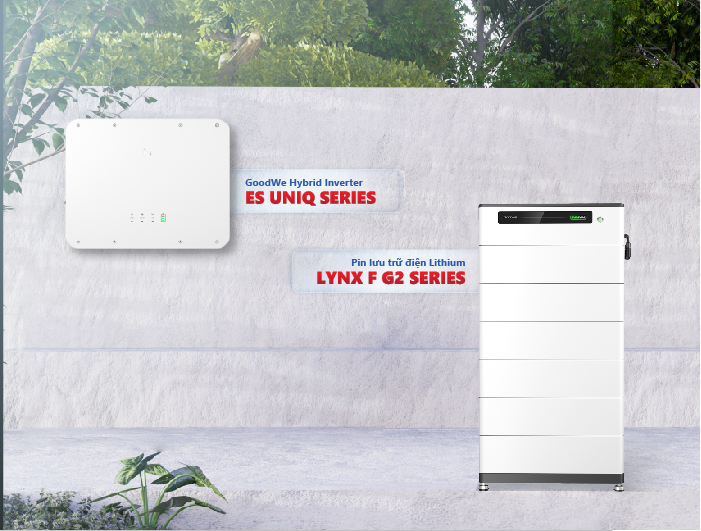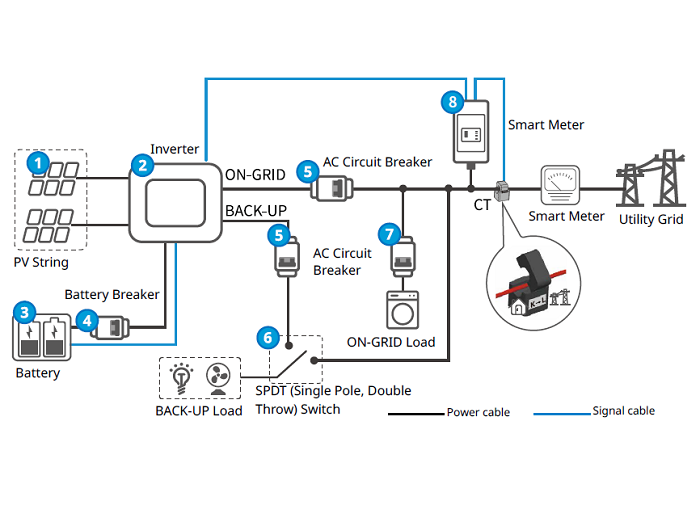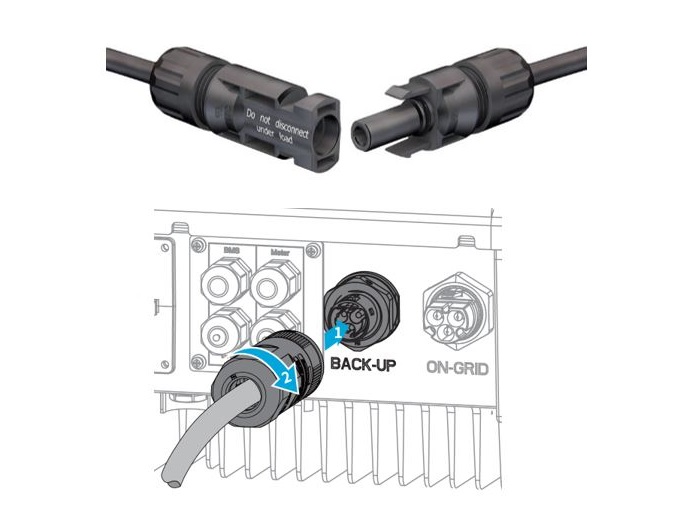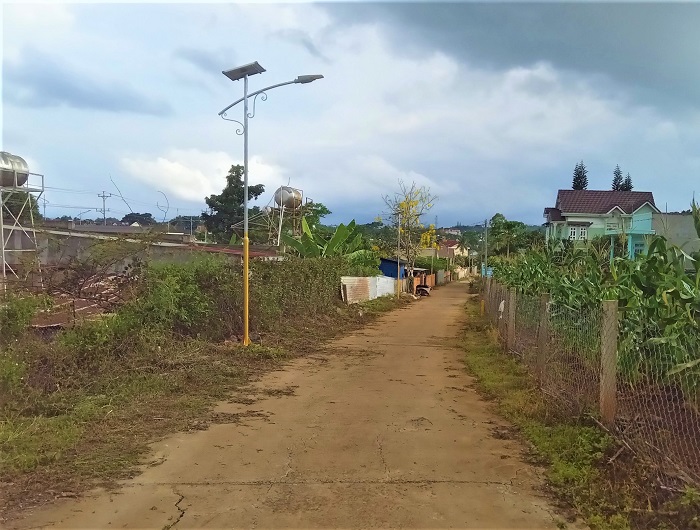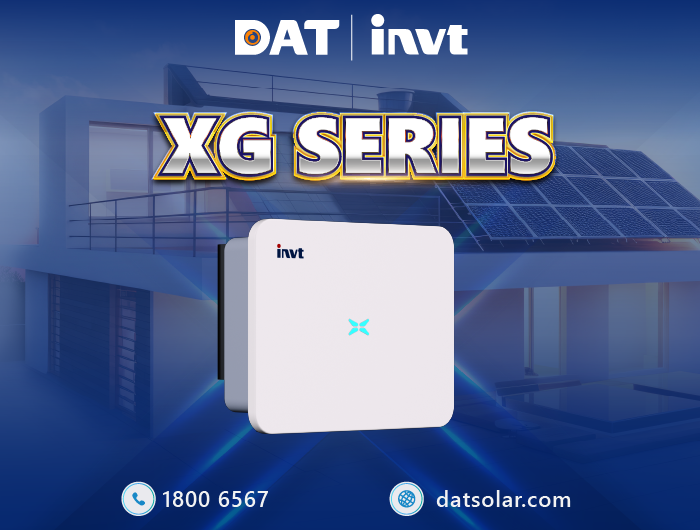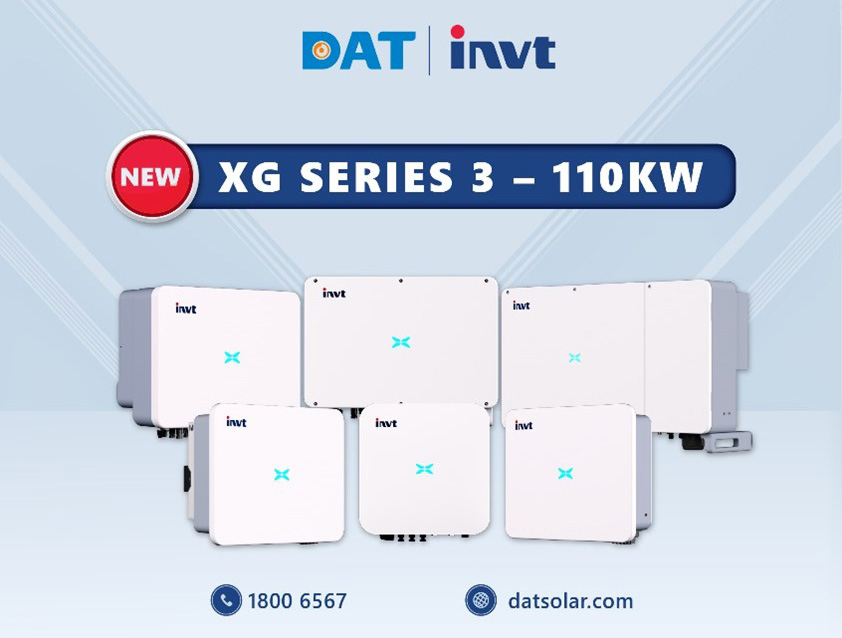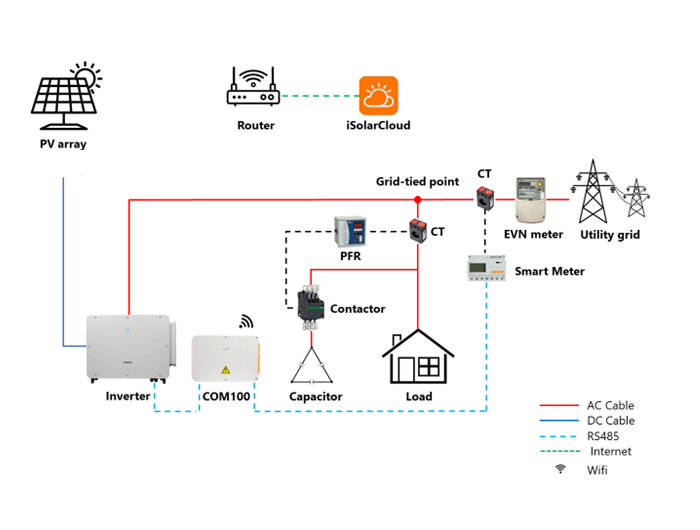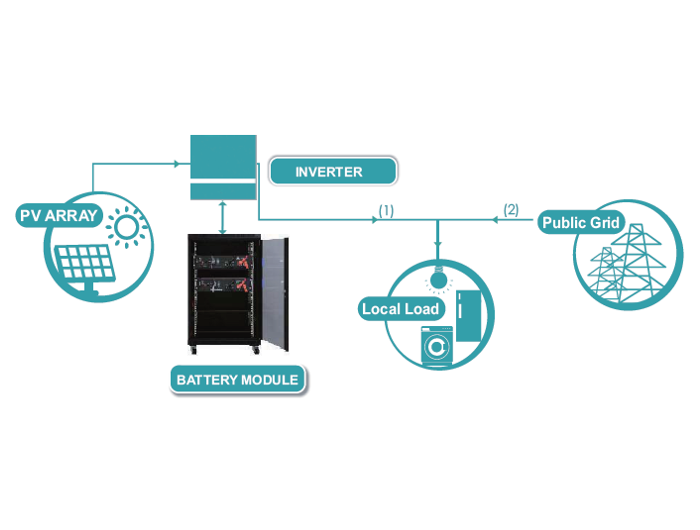Comparison of lighting efficiency between solar lights and grid lights
Nowadays, it is not difficult to come across images of lighting projects in rural areas, urban transportation, and illumination within factory premises, utilizing solar-powered lights instead of grid-powered ones. This aligns with the trend of using clean and environmentally friendly energy, offering easy installation and delivering cost-effectiveness.
So, the question arises: Why should solar street lights be used, and how do they bring superior efficiency, optimization in terms of cost, and system longevity?
High economic efficiency, cost optimization
To assess the cost-effectiveness of solar street lights versus traditional lights, one cannot solely focus on the price of the lights. It is crucial to consider all expenses incurred during the project implementation. Additionally, long-term efficiency and longevity for the project must be taken into account.
For larger construction scales or projects, installing conventional lighting tends to incur higher costs. The initial investment will be higher compared to solar-powered lights.
| Cost type | AC 220V street light – 60W | Solar street light Sokoyo – LUMO 60W | ||||||
| Quantity | Unit price | Total cost | Quantity | Unit price | Total cost | |||
| Initial construction cost | ||||||||
| Cost of lights | 92 | pieces | 2,043,860 | 188,035,120 | 92 | pieces | 9,179,000 | 844,468,000 |
| Control cabinet cost (2 cabinets) & MCB | 26,069,994 | |||||||
| Light pole cost and installation | 92 | pieces | 6,713,809 | 617,670,428 | 92 | pieces | 6,657,033 | 612,447,036 |
| Tube and underground cable installation cost | 786,606,500 | 0 | ||||||
| Underground cable duct construction cost | 2000 | m | 187,500 | 375,000,000 | ||||
| Grounding pole for lights | 31,250,000 | |||||||
| Total construction cost | 2,024,632,042 | 1,456,915,036 | ||||||
| Initial installation cost of solar lights lower than AC lights | 28% | |||||||
| Operating Cost – Maintenance for 10 years of use | ||||||||
| Electricity cost | [(60W x 12H/day x 365 days x 10 years x 92 lights)/1000] x 1,721 VND/KW | 416,096,496 | 0 | |||||
| System operating cost | 3650 | times | 57,522 | 209,955,300 | ||||
| Light maintenance cost | 92 | pieces | 4,560,324 | 419,549,834 | 24 | times | 681,315 | 16,351,560 |
| Replacement of storage battery | 0 | 92 | pieces | 4,589,500 | 422,234,000 | |||
| Total operating cost for 10 years | 3,070,233,672 | 1,895,500,596 | ||||||
| Installation and operating cost of solar lights for 10 years lower than AC lights | 38% | |||||||
Comparison table based on the project to install a lighting system for a 1 km long urban road in Ho Chi Minh City with two opposing lanes, each lane being 5.5m wide, and the cost of use over 10 years. Unit: VND
(Note: The data in the table is for reference purposes only)
Through the cost comparison chart, we can observe the economic efficiency of installing solar street lights compared to conventional grid-powered lights. The initial installation cost of solar street lights is 28% cheaper, and the installation and operation costs over 10 years are 38% lower than traditional electric lights.
Not only do solar street lights provide superior efficiency in terms of usage, durability, simple installation, and minimal additional costs, but they are also safe and environmentally friendly, aligning with the strategy of building new rural and smart city developments.
In addition to the high economic efficiency, the application of solar street lights in lighting projects brings many other benefits, such as:
100% solar energy usage, no electricity costs:
Unlike conventional lights that rely on grid electricity to operate, solar street lights operate entirely autonomously by absorbing solar radiation and converting it into electrical energy for nighttime illumination. Therefore, solar street lights operate without the need for grid electricity, ensuring that the lights stay on without incurring electricity costs.
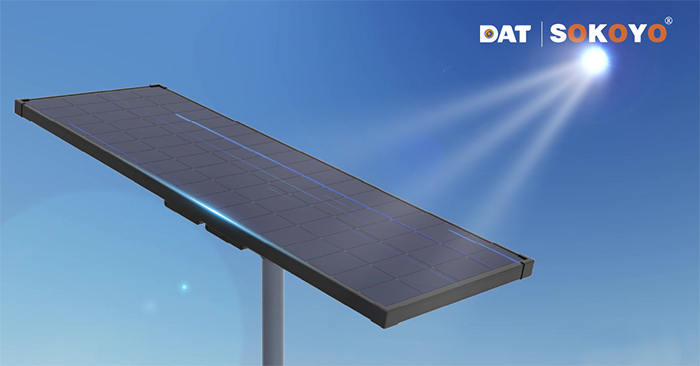
Safety and cost savings
Traditional lighting systems involve complex wiring systems and require a grid power source for connection, consuming time and labor costs during installation. These systems can also pose safety hazards, such as electrical shorts and shocks, during construction and maintenance.
In contrast, solar street lights do not require grid connections, eliminating the need for laying electrical wires. Installation is simplified—just insert the pole and install the lights for immediate use. Solar street lights use low DC voltage (less than 36V), which is nearly unaffected and safe for installation and maintenance.
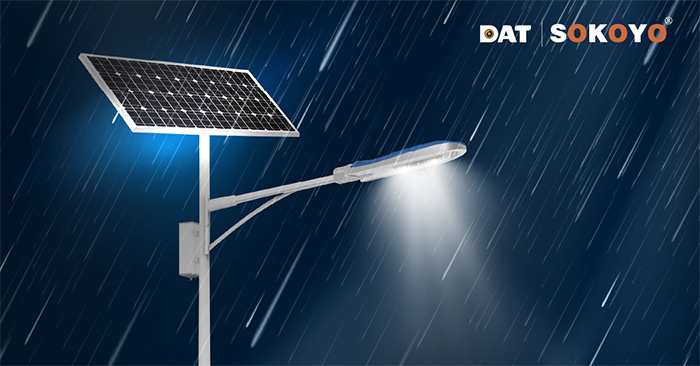
High durability and long lifespan, unaffected by harsh weather
The average lifespan of some conventional high-pressure lamps is only about 2-5 years. Solar street lights using LED chips have an average lifespan of 12-15 years. Solar panels have a durability of over 25 years, and Lithium LiFePo4 storage batteries have a lifespan of 5-8 years. These components are designed as modular units, allowing for component replacement without replacing the entire light system.
The light housing is made from solid materials, electrostatically powder-coated, corrosion-resistant, and impact-resistant, performing well in high-temperature environments, prolonged rain, and heavy dust. As a result, maintenance costs and time are minimized.
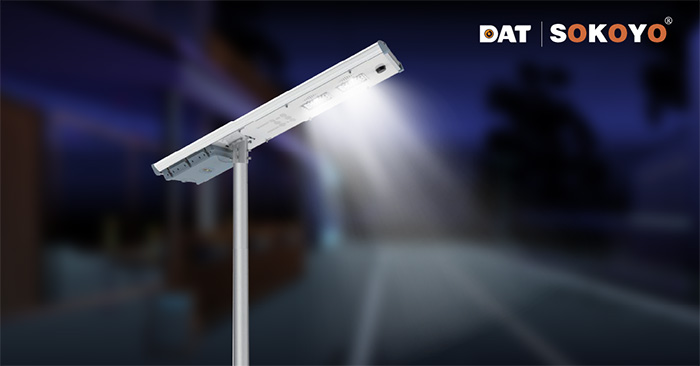
Better illumination capability
Compared to grid-powered lights, solar street lights have luminous efficacy >= 170lm/W, providing high brightness. The power of solar street lights ranges from 10 to 150W, suitable for lighting projects of various sizes, from small-scale projects to large applications such as factory internal roads, resorts, rural roads, urban traffic, and highways.
For more details about Sokoyo’s solar street light product lines, known for their quality standards and integration of modern technologies, certified with CE, RoHS, IEC, ISO, CB, widely applied in rural and urban lighting projects, call the hotline 1800 6567 for DAT Solar’s consultation and 24/7 support.

